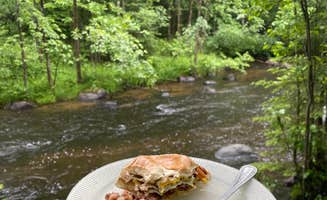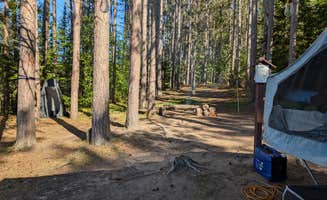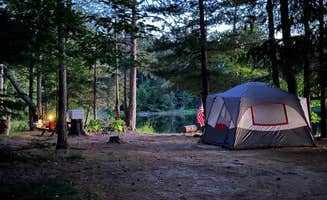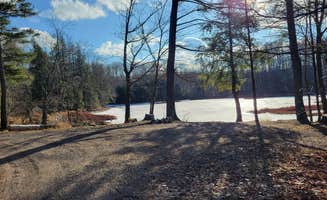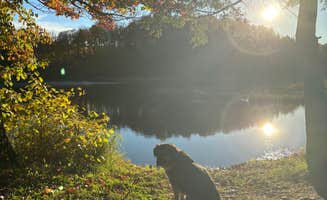Best Dispersed Camping near Wabeno, WI
The Chequamegon-Nicolet National Forest around Wabeno offers several dispersed camping options along rivers and small lakes. McCaslin Brook Dispersed site provides three sites with picnic tables, fire rings, and a vault toilet for $5 per night. Sites vary in size, with the largest accommodating RVs up to 20 feet, while the smallest is suitable for tents only. Several campers note rough access points with washed-out entrances requiring careful navigation.
Mountain Lakes Road and Oconto River sites provide more primitive options with varying accessibility. A camper observed the Oconto River site has "a small site, little rough to get into" while another warned "4x4 recommended. 2WD truck couldn't make it easily." Further north, dispersed sites around Wolf Lake, Woodbury Lake, and McKinley Lake offer scenic water access with basic amenities like fire rings and picnic tables. Most sites accommodate tents and small trailers but have limited parking. According to one visitor, "The small lake belongs to a pair of loons that will share their fish and sandy beach."


